Shinto shrine gates, torii, are found anywhere in Japan. They are usually unpainted or painted vermilion because in ancient times it was believed that the color represented the throbbing pulse of life and prevented disasters.
This is a typical torii.
Shimogamo Shrine in Kyoto.
The followings are the variations of torii in Japan.
This one is really huge (24.2 meters), standing over a road.
Heian Jingu in Kyoto. The building by the torii is The National Museum of Modern Art, Kyoto
A triple torii is called miwa-torii in Japanese. The origin of this type of gate is not known.
Mitsumine Shrine in Saitama
This is a modern style, minimalist torii.
Karasumori Shrine in Tokyo
This one stands at the corner entrance of Haneda airport.
The famous torii in the sea. Because the island itself is a god, they had no choice but to build the shrine and the gate in the sea.
Itsukushima Shrine in Hiroshima
Torii corridor. 10,000 of torii lined up.
Fushimi Inari Shrine in Kyoto
You can see another torii corridor that Japan Style introduced before HERE.
When you visit a shrine, you might pass a gate without paying special attentions, but a torii is an entrance to a god’s house. It is much nicer if you bow in front of it before you go through it, and that is a shrine manner but not a few Japanese people practice so.
This is JAPAN Style!
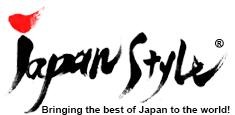

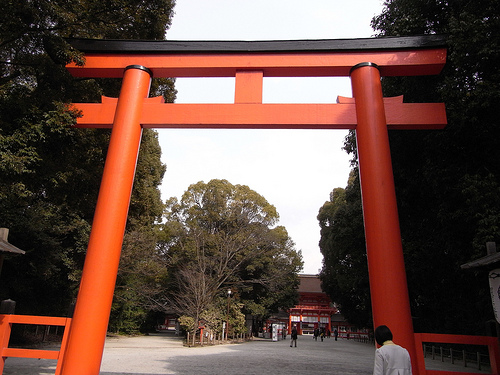
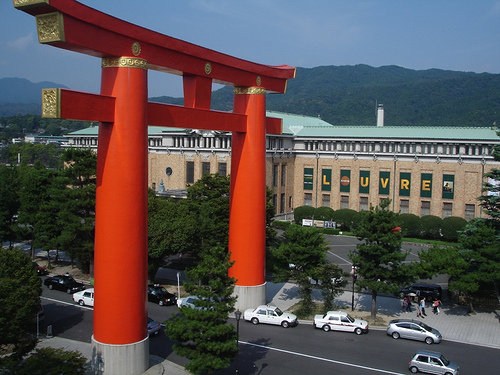
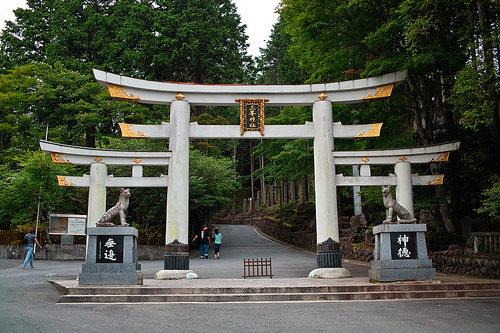
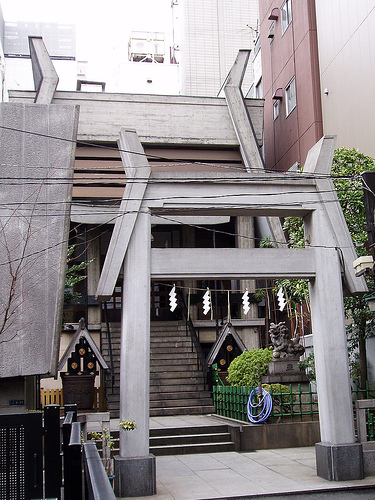
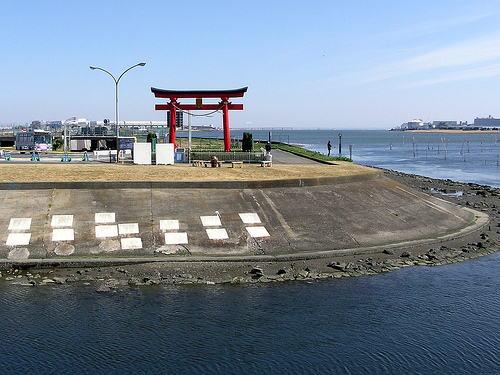
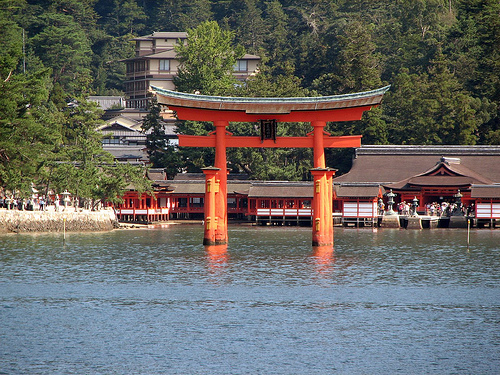
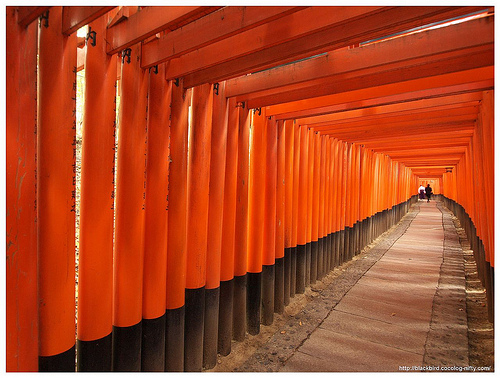







Recent Comments